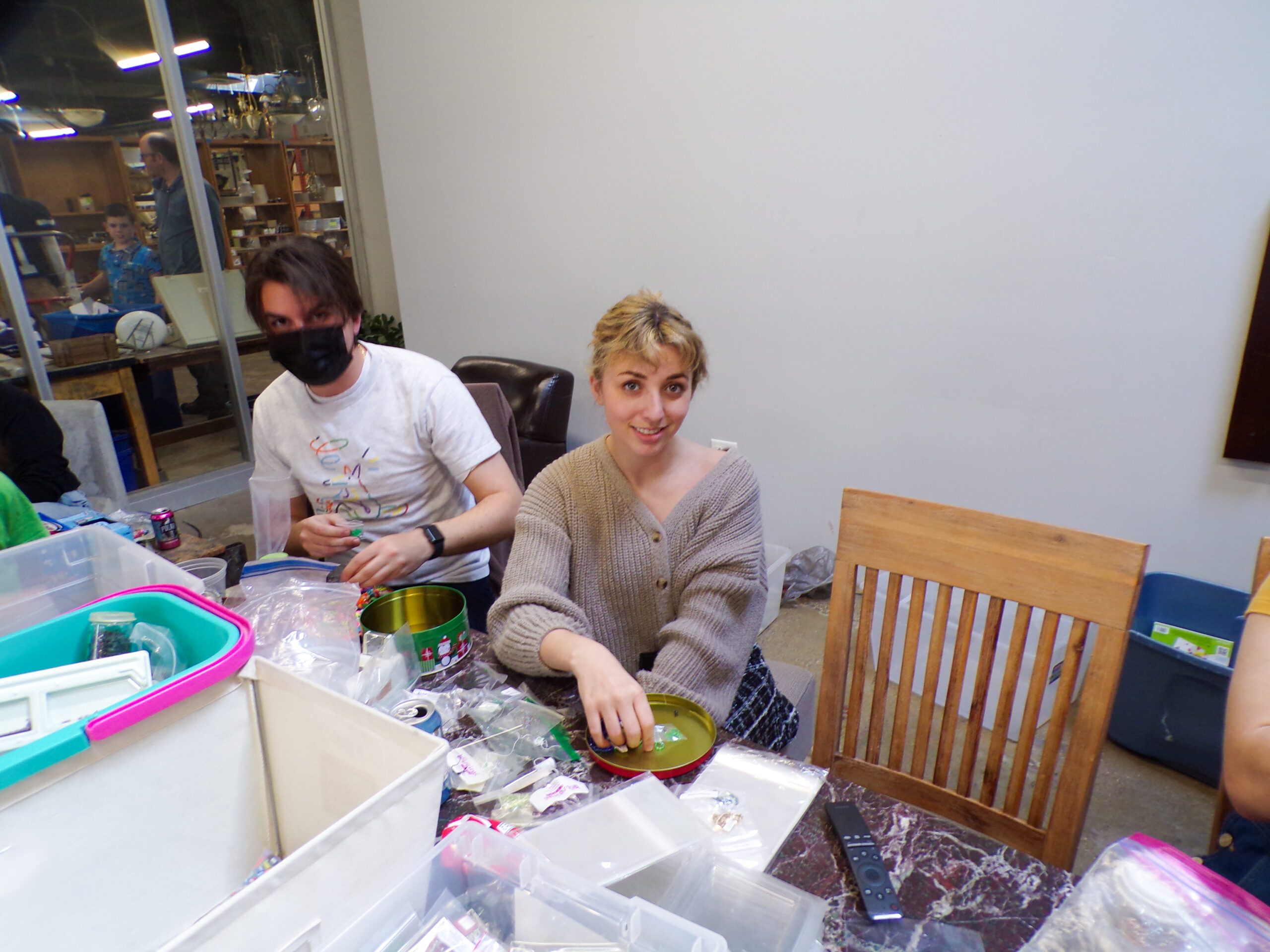In addition to the buildings on Loyola’s campuses which house classrooms, dorms and student spaces, the university owns several properties near their campuses which they rent out. In total, Loyola leases over 30 commercial storefront spaces and 500 market rate residential apartment units.
In addition to the buildings on Loyola’s campuses which house classrooms, dorms and student spaces, the university owns several properties near their campuses which they rent out. In total, Loyola leases over 30 commercial storefront spaces and 500 market rate residential apartment units.
These services are overseen by Lakeside Management, a subsidiary of the university registered as a non-profit corporation in Illinois. Other than mentioning the “easy access” to Loyola its properties offer, Lakeside Management doesn’t advertise its connection to the university on its website.
The university’s commercial spaces near the Lake Shore Campus (LSC) are concentrated on North Sheridan Road, North Broadway and West Granville Avenue, according to Michael Loftsgaarden, Loyola’s assistant vice president of capital planning. The university also leases commercial space surrounding the Water Tower Campus (WTC), including retail space on Michigan Avenue.
Lakeside Management operates eight apartment buildings, seven of which are clustered around LSC — mostly south of campus — while the other is adjacent to WTC.
The university brought in $11,813,868 in revenue from rent during the 2021 fiscal year, according to the university’s tax forms. That year, expenses for university-owned rental spaces totaled $11,090,178, resulting in a net profit of $723,690.
Lakeside Apartments
Prior to the launch of Lakeside Management in 2011, Loyola outsourced the management of its capital holdings to a third-party company, according to a university press release.
Wayne Magdziarz, Loyola’s senior vice president, chief financial officer and chief business officer, said the move to bring operations in house has allowed the university to more effectively utilize their portfolio.
“When we had it managed by a third party, most of our apartments probably at any given time were between 60 and 70% leased,” Magdziarz said. “Today, ever since Lakeside and our internal folks have done it, we’re always around 95-98% leased.”
Lakeside’s residential offerings are mainly located west of campus near the Loyola Red Line station and on the southern portion of LSC on North Kenmore and North Winthrop avenues. Their residential buildings include The Sovereign, Montserrat and Loyola Station and 6241 N. Winthrop Ave.
Of the 500 units, Loftsgaarden said there is roughly a 50-50 split between student tenants and non-student renters. The university would like to see an increase in the number of students who are renting with Lakeside Management, according to Loftsgaarden. Lakeside has coordinated with Residence Life to present Lakeside as an option for students who are transitioning out of residence halls, he said.
Dr. Des’mon Taylor, director of residence life, confirmed in an email to The Phoenix the two divisions collaborate in offering what he called “a more unified housing experience” for students.
“The Department of Residence Life is in constant communication with the Lakeside Management team to provide a living experience with myriad on and off-campus options,” Taylor wrote.
Magdziarz said the partnership is a good way for the university to ensure students find proper housing.
“That’s actually another reason why we formed Lakeside Management in the first place,” Magdziarz said. “Because we wanted to be sure that if, for example, a student was looking for an apartment on or close to campus, we could direct them to properties that we knew were well run, well managed, secure rather than just having a particular student go into the neighborhood.”
One option the university has with the Lakeside Management apartment buildings is to convert them into residence halls. This is something Loyola has done in the past, but is very rare, according to Magdziarz.
The university most recently chose to convert the buildings in order to adhere to social distancing policies during the pandemic, according to Clark. Magdziarz said to achieve this the university must depopulate the building of its market rate renters by not renewing tenant’s leases when they expire.
“We’re not gonna ask people to leave, and if we don’t renew the leases in that particular building, we may ask them to or suggest that they move to another building,” he said. “We can help them into either a Lakeside portfolio building or help them get another lease in the neighborhood if they want to stay.”
When asked if renters are aware they are leasing from the university, and their building could be subject to conversion, Magdziarz said the university doesn’t make a “big deal” out of it since the move to a residence hall is rare, but they will answer questions about Lakeside and its operations if asked.
“It doesn’t take much to figure out Lakeside is Loyola, but we use the Lakeside logo to give it a little bit more curbside cachet in the neighborhood,” Magdziarz said.
Commercial Spaces
Retail leases make up a sizable portion of Loyola’s capital portfolio. Notable businesses that lease from the university include Raising Canes, Blaze Pizza, Metropolis Coffee and Chick-Fil-A at WTC. Storefronts are often on the ground-level of buildings otherwise used for classrooms, dorms and Lakefront Management apartments, such as The Grenada Center commercial spaces which lay below Fordham hall.
Loftsgaarden said the pandemic has created some issues finding tenants to fill, specifically the spaces the university holds downtown, due to an ongoing flux in the retail industry. He said despite some setbacks and continuing move-outs near Water Tower Place the university has been successful attracting new tenants.
Despite the university’s tax exempt status, Loyola is subject to pay unrelated business income tax on their retail properties Magdziarz said.
Jennifer Clark, associate vice president of campus and community planning, said Loyola makes an effort to support small and local businesses when selecting tenants for their retail spaces. Clark highlighted the university’s “Anchor Strategy,” a commitment the university has made to contribute to the local community through economic development, neighborhood revitalization efforts and community partnerships.
Approximately 55% of the businesses Loyola leases to are independent and locally-owned, according to Clark. She said one of the university’s objectives with its real estate resources as well as other sectors of the university’s operations is to improve quality of life in the surrounding community and city at large.
“One of the ways we improve quality of life in Chicago is economically, so the more support we have for locally-owned businesses,” she said. “The more money we invest in the local economy as opposed to being sent out to some other state where a business’ headquarters is located.”
In recent decades Loyola has contributed to and facilitated the economic development of the North Sheridan Road corridor, including the construction of the Montserrat at Loyola Station and the Hampton Hotel Building.
Loyola is working with local commercial organizations to incentivise development on West Devon Avenue through the Elevate Devon project, the goal of which is to foster an improved business climate, The Phoenix reported. Although Loyola doesn’t own any property on Devon, Clark said the university has an interest in increasing the economic vitality of the area.
“Quite frankly, it’s the last remaining piece where we have too much disinvestment,” Clark said. “If I was driving in from O’Hare airport and just saw how many vacant storefronts with nothing happening there and buildings getting demolished with no idea what’s coming up behind it, you know, it would be a little concerning to me.”
There are several vacant Lakeside Management retail spaces for which Loftsgaarden said the university hopes to find suitors.
In October 2021, Loyola became involved in an eviction suit with a retail tenant, The Phoenix reported. The owner of the now closed, upscale restaurant Onward claimed the university didn’t follow through with promised physical renovations and didn’t provide support during the pandemic.
“They’re Not Making Anymore Land”
Both Magdziarz and Loftsgaarden laid out how while in the short term Lakeside Management rents out units in apartment buildings, the long term goal of the organization is to hold property for the purpose of future campus development.
Magdziarz said there are Lakeside buildings on sites he envisions the university at some point in the future developing a new academic building or residence hall.
“It is unlikely that the university for example would take one of those Lakeside buildings and just outright sell them to a third party,” Magdziarz said. “One of the reasons for keeping them is, number one, they’re not making any more land and number two, they do have a strategic importance to the long term growth of the campus.”
Loftsgaarden pointed to the 2019 construction of Francis Hall as an example of this development process.
“We had some university properties, one was a vacant field, we had kind of a house more or less that the university had for some time, and we had one of our Lakeside apartment buildings, and we kind of cleaned all that up and built one residence hall there,” Loftsgaarden said. “That pretty much would be the plan for most of the buildings.”
Some local residents and community members staged protests for the demolition of the buildings on the site of Francis Hall, The Phoenix reported. Outspoken residents, which were led by members of Edgewater Historical Society, cited environmental concerns as well as issues surrounding the availability of affordable housing in their opposition.
“If you just go through the history of Loyola over the past 10, 15, 20 years, we did buy up a lot of buildings south of campus where we have a lot of residence halls now,” Loftsgaarden said. “That was done obviously strategically because of location, proximity to campus. That’s like our number one thing.”
Clark said there is a need for additional on-campus housing, specifically for upperclass students. The university has been forced to turn away upperclass students from on-campus housing in the past, The Phoenix reported.
During a Nov. 15 presentation in which he laid out Loyola’s financial standing, Magdziarz said Loyola has been on a “building spree” recently and the university may have to scale back its construction in the coming years.
The university has indicated they are interested in purchasing a building west of campus on the St. Ignatius Campus which has been put up for sale by the Archdiocese of Chicago, The Phoenix reported. As of publication there is no deal in place for the purchase of the building which the university has suggested they would be interested in converting into student housing, although Clark said options remain open.
“It’s just this opportunity is here, and it’s not gonna come along again, it’s a once in a generation if not longer, once a building is built, it’s built,” she said. “Whoever buys that property, whatever they decide to do with it, the neighborhood will be living with that for the next two, three generations. And whether that’s Loyola or somebody else is the immediate question.”
Stop Loyola Lots
The other kind of off-campus real estate the university owns are a series of vacant lots west of campus. Three of the lots are clustered on West Loyola Avenue near the Red Line station, while a fourth is further south on Broadway.
The university uses one of the vacant lots on Loyola Avenue to house university vehicles when they are not in use, while the other two are kept empty. Loftsgaarden said the university previously used the larger lot adjacent to the station as parking for contractors working on campus construction projects.
The university has owned the parcels since the early 1990s, according to public property records.
The university has allowed a local organization to open a community garden on the lot on Broadway, Loftsgaaden said. When asked if a similar use could be put in place at the other lots, he said it could be an option.
“That’s a concept there, where instead of it being a vacant lot all the time and it not really doing anything for anybody, we were able to find a use for it that makes sense until we need to develop it at some point,” Loftsgaarden said.
Some members of the community have criticized the university for leaving the lots empty, saying it harms the community and the lots are an eye-sore. Residents became particularly outspoken when Loyola expressed interest in buying the St. Ignatius building. Some hung up flyers throughout the neighborhood which declared “STOP LOYOLA LOTS,” The Phoenix reported.
“There’s validity to that obviously nobody wants a vacant lot or what have you sitting there, but it’s kind of that thing where a property comes available versus the time you actually need it for that desired goal you’re looking for,” Loftsgaarden said.
Clark and Loftsgaarden said the university has no immediate plans to develop the lots, Loftsgaarden acknowledged the vacant lots can create issues for any future expansion the university may embark on.
“It becomes a negative for the university, too, for future acquisitions, because then it looks like ‘oh what is the university gonna buy another property so it looks like these,’” he said.
-

Griffin Krueger is the Editor-in-Chief of The Phoenix. He began working for The Phoenix during his first week at Loyola and has been writing about the university, the surrounding community and the city of Chicago ever since. Krueger previously worked as Deputy News Editor and Sports Editor and is a fourth-year studying political science with a minor in history. Originally from Billings, MT, he enjoys reading and exploring the city on his bike.
View all posts











